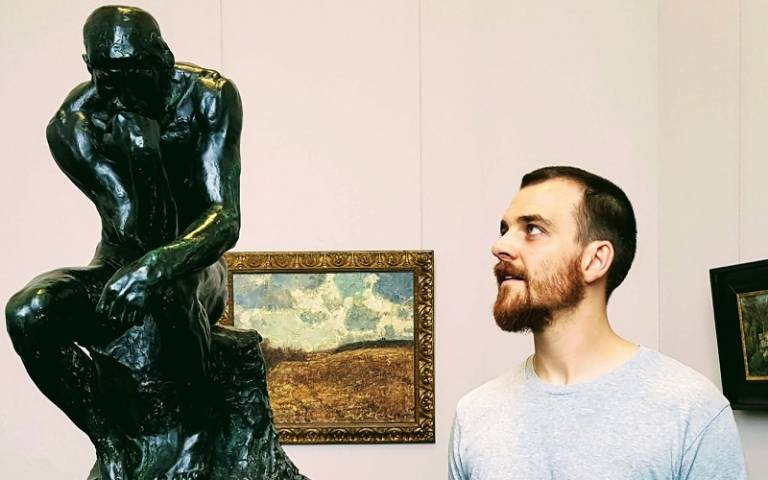Spotlight on... Dr Bennett Kleinberg
23 April 2020
This week we meet Bennett Kleinberg, lecturer in data science in the Department of Security and Crime Science and the Dawes Centre for Future Crime. Bennett has recently published among the few high quality datasets on emotional responses to COVID-19 in the UK.

What is your role and what does it involve?
I’m a lecturer in data science in the Department of Security and Crime Science and the Dawes Centre for Future Crime. I’m teaching data science to our undergraduates and postgraduate students. I do research on how we can use computational methods to better understand crime in the broadest sense. My principal focus is on using text data, which you find everywhere and which we leave as a trace of our behaviour all the time. Text data offer a unique lens through which we can study human behaviour and cognition, so it's worth embracing it as a method to study crime differently.
How long have you been at UCL and what was your previous role?
For almost two years. Before joining UCL, I was a doctoral researcher at the University of Amsterdam and I worked at the intersection of cognitive and forensic psychology and natural language processing. I’m trained as an experimental behavioural scientist and happened to like statistics and coding.
What working achievement or initiative are you most proud of?
Research is my foremost interest, so I’m most proud of the group of young and inspiring PhD researchers that I have the privilege to work with. Just as I have benefitted from mentorship and the freedom to explore ideas, I would like to pass this on to them.
Tell us about a project you are working on now which is top of your to-do list?
Currently, my interest is in building a solid underpinning of how we can make inferences from text data. If you look closely, it turns out there are a lot of untested assumptions – almost a wild west of approaches. I think we have a lot to gain if we manage to carefully understand the nexus from behaviour and cognition to text data. We’ve very recently looked at the emotional reactions to COVID-19, which also falls into that research area. Text data are amazingly rich but also full of pitfalls, which makes it an exciting area to work on.
What is your favourite album, film and novel?
Two novels: The Corrections by Jonathan Franzen and The Circle by Dave Eggers.
What is your favourite joke (pre-watershed)?
How many push-ups does Cristiano Ronaldo do every day?
Answer: all of them.
Who would be your dream dinner guests?
For every dinner with my family, I'd happily ditch any famous person.
If I had to choose someone I don’t know yet, I’d love to talk to Daniel Kahneman. I admire his work and rigour but would want to know more about him.
Dead or alive: I’d also like to ask Karl Popper what he thinks about current data science.
What advice would you give your younger self?
Most problems solve themselves, but some don't. And you always meet twice in life, so be nice (and remember who’s not).
What would it surprise people to know about you?
I don’t know what big data is supposed to mean (I suspect no one does, but it sells). And: I almost went on a very different path with postgraduate studies in the history and philosophy of science. This didn’t happen because the degree was cancelled but I still follow this interest in my free time.
What is your favourite place?
Depends on who else is there. My current preference: the Swiss alps in the summer.
 Close
Close

